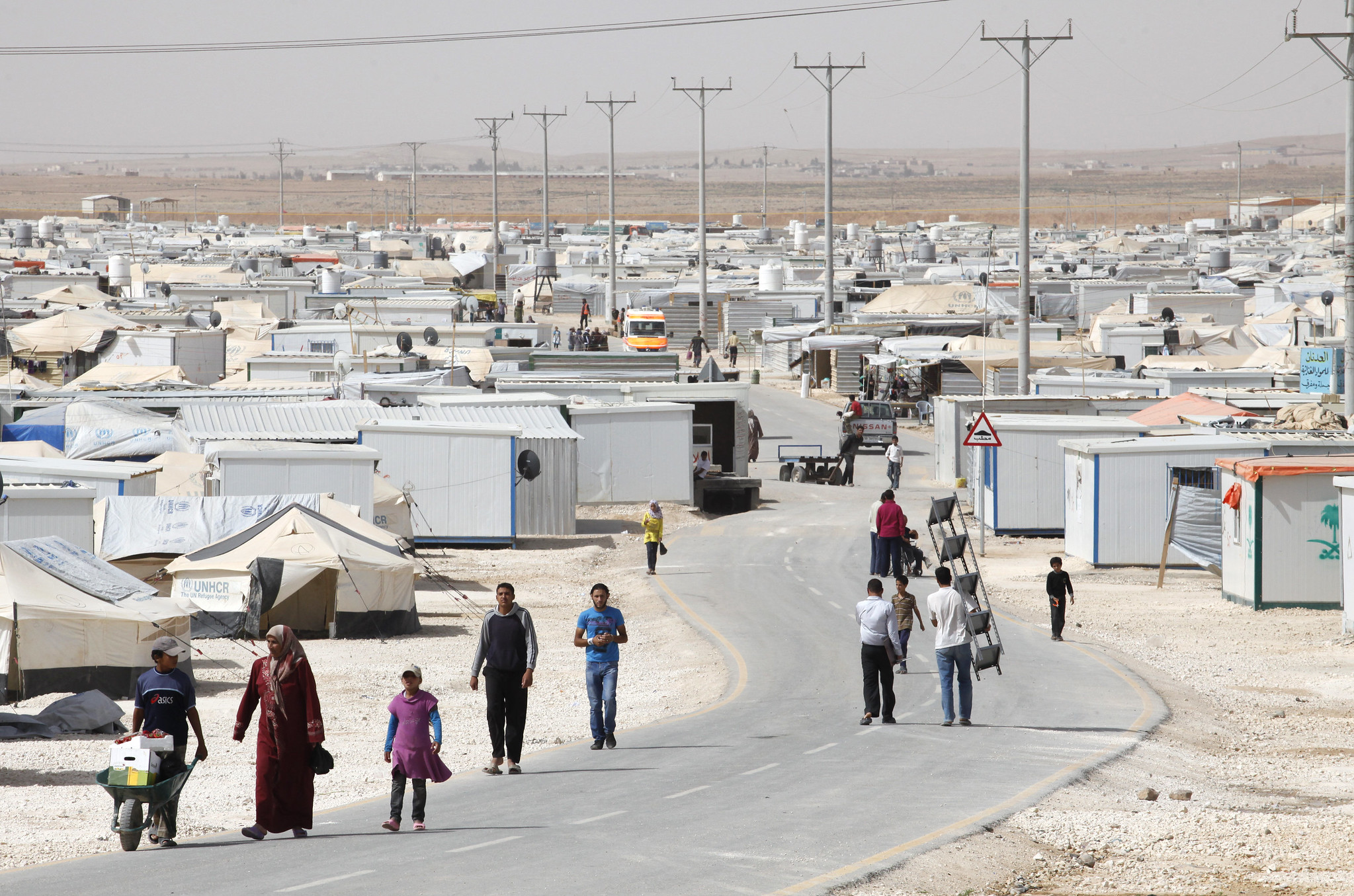Estimating the Impact of Formal Work Permits on Schooling Attainment Among Syrian Refugees in Jordan

Local housing fills many hillsides in Amman, Jordan, a city of over four million. Credit: David Stanley / Flickr
Study Context
Thousands of Syrian refugees have fled to Jordan since the Syrian civil war began in 2011. Large flows of refugees began in 2013, and until 2016 Jordanian work permits were unavailable for Syrian refugees. In the absence of work permits, refugees remain reliant on aid or engage in low-wage and risky informal employment. Educational attainment is also lower for Syrian refugee children than Jordanian nationals. Bailey asks whether the introduction of work permits in 2016 incentivized refugee children to attain more education to capitalize on higher returns to education in the formal sector.
Study Design
Bailey’s identification strategy requires a large group of study participant families with multiple teenage children in the years immediately before and after 2016, provided by the Syrian Refugee Life Study (S-RLS). A 2020 round of phone surveys conducted with the same group is useful for benchmarking the number of observations available for the study. According to the 2020 phone survey group, there are 568 families with at least 2 children born between 1998 and 2004, corresponding to 1,385 children.
Bailey will conduct focus groups with Syrian refugees and local officials to determine the validity of assumptions about educational attainment and work permits. The focus groups will aim to address four questions:
1) How easy is it to attain a work permit?
2) Did refugee families perceive that introduction of work permits might expand their children’s job opportunities, and the return to education? Did it take time for families to internalize this fact, or was it immediate?
3) How binding is the statutory schooling law for refugees?
4) Do refugees under 18 ever attain work permits (despite the law against it)?
Results and Policy Lessons
Bailey learned that bullying and corporal punishment are major problems facing Syrian refugee children in schools, particularly boys, and that it negatively affects educational attainment. Additional factors include difficult transportation and poor instruction quality. The reported linkages to attainment and work permits were low and, thus, the originally defined research angle was not pursued.
Bailey has used the preliminary findings to inform future proposals looking at more likely contributing factors to educational attainment.


